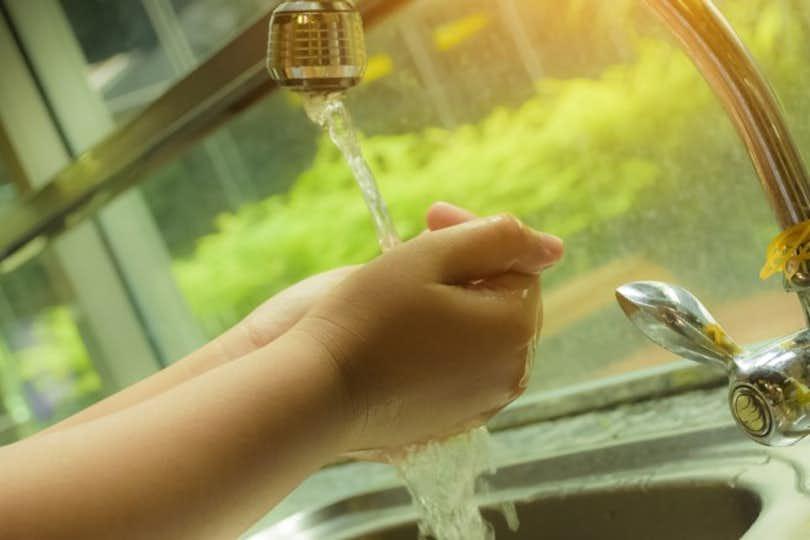Well inspection cost considerations | Buying a home with a well | Who should I call for a well inspection? | What happens during a well inspection? | Well repair costs | Well maintenance tips

Well inspections cost an average of $300-500 in the United States.[1]
Homes that get their water supply from wells are prevalent in rural areas. Usually, these homes also rely on septic systems to process their waste water.
Well and septic inspections should be conducted regularly to ensure the systems are operating properly. In the context of a home sale, they may even be mandatory.
Well inspection cost considerations
| Service | Average cost |
|---|---|
| Well inspection | $300-500 |
| Water testing | $100-300 |
| Well inspection with septic system inspection | $400-650 |
| Water testing with general home inspection | $369-546 |
| Travel | $1-2 per mile |
The cost of a well inspection depends on local market conditions, the types of water tests necessary, and whether it happens in conjunction with another related inspection.
In addition to checking the condition of your well equipment, well inspectors test the safety of your water supply. A well inspector takes water samples and sends them to a lab for analysis. Water quality testing can cost an additional $100-300 depending on the type and quantity of tests your inspector orders.
Often, septic tank inspectors are also certified to conduct well inspections. If you combine your well and septic tank inspections, your inspector may cut you a deal. Together, the cost for these inspections averages $400-650.
>>MORE: How Much Does a Septic Tank Inspection Cost?
Your general home inspector does a cursory visual inspection of your well as part of their examination. Some home inspectors may also be able to offer water quality testing. Bundling these services will save you some money. The average cost of water quality testing with a home inspection is $369-546.
Since many homes with wells are located in remote locations, inspectors may charge an extra $1-2 per mile for travel.[1]
Buying a home with a well
Certain areas may have a point-of-sale well inspection mandate that requires a well inspection whenever a property changes hands. These mandates vary at the state, county, and municipal levels. Your real estate agent should be familiar with local regulations.
>> 🔎 Looking for a realtor? Connect with a knowledgeable agent in your area today!
Typically, in areas with a point-of-sale well inspection mandate, the local health department provides a list of certified and approved inspectors from which to choose. Once they've conducted the inspection, the health department will need to review and approve the results before the home sale can progress.
Additionally, when purchasing a home with a private well, your mortgage company may require specialized well and septic tank inspections. Requirements like this are unique to the lender and may vary depending on the circumstances.
Who pays for a well inspection when a home is changing hands? 🤷♂️
The seller is usually responsible for initiating a well inspection in the context of a home transaction. Especially if the local area has a point-of-sale mandate.
In most other cases, the buyer is financially responsible for a well inspection, particularly if it is necessitated by their lender or insurer.
Who should I call for a well inspection?
There are professional inspectors who specialize in wells. These individuals are the most knowledgeable and qualified to conduct a well inspection. Note that reputable inspectors do not also conduct well repairs as this is a conflict of interest.
Some septic tank inspectors are also certified as well inspectors since these systems usually coexist on a property.
General home inspectors will do a visual inspection of your well and may also be able to sample water quality. However, this level of inspection is usually not thorough enough to meet point-of-sale mandates or lender requirements.
Your local health department may offer water quality testing for free. They'll also know inspectors in the area who are certified to conduct more in-depth well inspections.
Additionally, the Environment Protection Agency (EPA) has a Safe Drinking Water Hotline that can connect you with certified local resources for water safety. Visit their site at www.epa.gov/safewater/labs or call (800) 426-4791.
How do I choose a good well inspector?
Some areas require well inspectors to be licensed through a contractor licensing agency or the local health department. Check to see if this is the case in your area before hiring a well inspector.
You may also ask knowledgeable experts for a referral, including:
- Your real estate agent
- Your general home inspector
- Your local health department
- The EPA via its Safe Drinking Water Hotline
- Neighbors with wells who are familiar with local water quality and well maintenance
There are also a number of online resources, such as HomeAdvisor and the Better Business Bureau where you can search reviews and information on well inspectors in your region.
What happens during a well inspection?
Well inspections are two-pronged. The inspector examines the well equipment and tests the water quality.
When surveying the equipment, the inspector checks the condition of the well and its parts, including the pump, casing, storage tank, cap, and vents. The inspector also does a visual check on all seals, gaskets, screens, and overflows.
Your well inspector should be familiar with state and county regulations so they can ensure your system, its source, and the area around the well is up to code and compliant with local ordinances like setbacks.
During the well inspection, your inspector keeps watch for common problems that can cause health issues such as rust on the pressure tank, low pressure levels, faulty gauges, and cloudy water in the well pipes.
Following the physical inspection, your well inspector takes samples of your well water and sends them to a state-certified lab. The samples are tested for microbes, harmful bacteria like E. coli, toxic substances like arsenic, contaminants like radon, and levels of other substances like fluoride and sulfate.
Once the lab has analyzed your samples, they provide a report of the results. Your inspector combines this report with their own evaluation of the well system. If required, you will turn this information in to your local health department who will review and approve it. If it is not approved, you will work together to take corrective action and ensure the safety of your water supply.
Can I test my own water with a DIY kit? 🤷♂️
Yes, home water testing kits are available in stores and online for $25-600.
Clearly, that is a significant price range. The quality and accuracy of these DIY water quality tests varies greatly, so check out the reviews and ask for recommendations before investing in one.
You may be able to request a free test kit from your local health department or through the EPA.
While DIY water quality tests can be informative for measuring certain elements, they will likely not satisfy the well inspection requirements of your lender or insurer.
Well repair costs
| Service | Average cost |
|---|---|
| Well pump replacement | $200-800 |
| Well pump repair | $337-1,418 |
| Storage tank replacement | $800-3,800 |
If your inspector identifies issues with your well equipment, repairs can be pricey.
The average cost of a new well pump falls between $200 and $800 depending on the size and type. Repairing your pump costs an average of $877 though it ranges $337-1,418 based on the type of pump and the extent of damage.[2] [3]
| Type of pump | Average replacement cost |
|---|---|
| Submersible pump | $200-1,200 |
| Jet pump | $100-800 |
| Hand pump | ~$150 |
| Solar pump | $2,000+ |
Replacing your well's storage tank costs $800-3,800.[2]
Well maintenance tips
To avoid costly repair, stay on top of well maintenance and inspections.
Per EPA recommendations, have your water tested annually for the following levels at minimum:
- Coliform bacteria
- Nitrates
- Dissolved solids
- pH
In addition to annual testing, ensure you run water quality tests when:
- You build a new well
- You replace well pipes, pumps, or casing
- You have a new baby on the way or a young child living in the home
- You notice an odd smell, taste, or staining from your water
- There's been a chemical or fuel spill or leak nearby
- You've drilled or dug near the well
Keep an eye out for possible opportunities for contamination, such as:
- Breaks in the well cap seal
- Chemicals stored near the well
- Kennels or livestock pens near the well
Finally, use these common-sense guidelines:
- Make sure the ground slopes away from the wellhead
- Clear plants from the wellhead
- Avoid using pesticides, degreasers, fertilizers, and other pollutants near the well
- Don't dispose of waste in the well
- Pump and inspect your septic system regularly
- Don't use harsh chemicals in your septic system
- Consult local experts after a flood or other natural disaster



